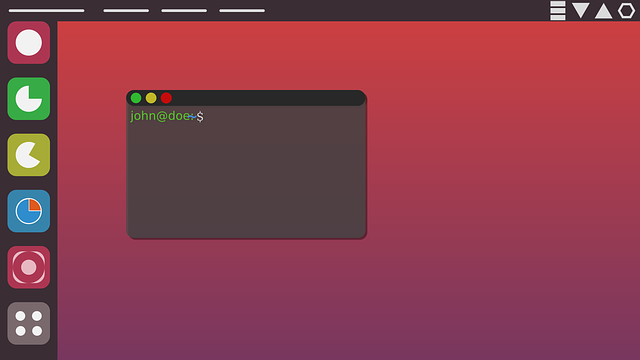Multiple enterprises had chosen to use a Linux based VPS over Windows based VPS due to the plans for Windows VPS are usually more expensive. Not to mention, Linux VPS supports a huge variety of open-sources programs such as Apache, PHP-based applications, and more for being an open-source operating system itself. There are also a huge variety of Linux distros that can be used on a Linux VPS, and what would be the best for you? We are willing to share 10 available Linux distros that youare free to choose from depending on your preference.
1. Ubuntu
To start off, let’s begin with Ubuntu, which is probably one of the most well-known Linux distros. Ubuntu itself is Debian-based, however, it is able to outdo its competitors for its convenient installation and good hardware.
It is also assured that Ubuntu will be getting a new LTS version at least every 2 years and provides long-term support. Ubuntu is a popular choice for non-tech people in the Linux VPS hosting user base, given how GUI has become relevant for the past decade.
2. SUSE
SUSE Linux Enterprise Server or SLES is owned by Micro Focus. This distro’s selling point is that it is stable and easy to maintain. For users who couldn’t afford to wait for long troubleshooting calls due to time restraint or lack of patience, SUSE does provide 24/7 technical support.
The system also came with features such as software module, live kernel patching, complete system rollback, and more for the release SLES 15, which was released in October 2017.
3. Red Hat Linux
Red Hat Linux is a database backup-oriented Linux that runs smoothly on any server. This Linux distro uses fits more to organizational use rather than home use, which is the reason why it is mostly preferred by multinational corporations. This is also due to the fact that they provide good innovations, technical support, and probably amongst the cheapest Linux VPS Hosting. This operating system has both paid version and a free version, where you will get the latest update at the paid version for testing, then only optimized into the free version.
4. Mandriva
Mandriva is one of the best Linux OS available for a VPS. It is well-known to be the best operating system for VPS servers in South America and European countries. There are multiple community supports provided by Mandriva users. The Linux distro also gets new updates around once every 9 months and each release is being supported for 18 months.
5. Xandros
As mentioned earlier, most people would prefer Linux over Windows due to the licensing price which can be costly. However, if you needed Mircrosoft services, then Xandros is the right Linux distro for you. Most of the Microsoft applications are compatible with Xandros, and no Linux distros are as compatible as Xandros is.
6. Slackware
Many corporations give fee-based support to Slackware as it doesn’t associate itself with any commercial Linux distributions. It releases newer versions regularly and is known to have maintained a loyal user base.
7. Debian
Debian is very likely the best Linux Distro for server hosting. It has many benefits over other distros such as usability, versatility, and community supports. This is all proven by many users who found Debian to be sufficient for their operation.
This Linux distro itself doesn’t have a specific support team to resolve user queries, however, it is possible to hire professionals to solve issues in the forum. There was multiple Linux distro such as the one mentioned above, Ubuntu, Linux Mint, and others were based on Debian and credited for it. Despite the lack of support, it is proven to be stable and is able to provide the same experience as RHEL.
8. Vyatta
Vyatta is a Linux distribution that seems to shine more in securing communication requirements. This Linux distro is more suited for firewalls and routers than desktop applications.
9. CentOS
CentOS is based on RHEL, but it may not be for strictly commercial uses. A lot of web host servers are being powered by CentOS. This Linux distro is considered as a low-cost RHEL, despite using RHEL code, without the Red Hat trademarks, making it free to use. CentOS is an operating system that depended on its community and users to develop. This distro owns its own storage location and has community support for the users.
10. ClearOS
ClearOS is a platform with a combination of a network, server, and gateway. It has a minimalistic design due to cloud use-cases. ClearOS is suitable for less-experienced web administrators and small corporations. The update for this operating system usually comes as a whole operating system instead of smaller packages.


